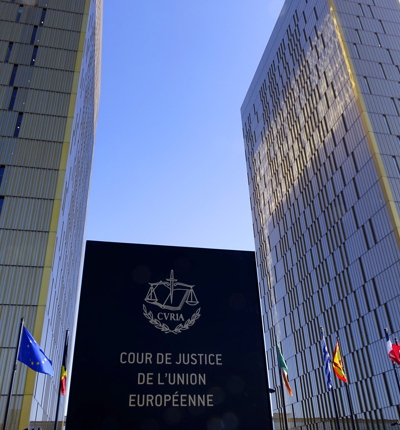
European judgment recognises the rights of Saharwi people of the Western Sahara
The Court of Justice of the European Union delivered a landmark judgment today which recognised the rights of Saharwi people of the Western Sahara
Posted on 27 February 2018
A landmark judgment delivered today recognises the rights of Saharwi people of the Western Sahara.
The final judgment comes three years after the claims, led by law firm Leigh Day and issued against the Department for Rural Affairs (DEFRA) and Her Majesty’s Revenue and Customs Service (HMRC) on behalf of Western Sahara Campaign UK (WSCUK), argued that the UK was unlawfully allowing products, originating from or processed in Western Sahara, to be imported into the UK under a trade agreement with Morocco.
The historic decision, delivered in the Courts of Justice of the European Union (CJEU), accepted claims from independent support group WSCUK that the European Union, when entering into agreements with Morocco must respect the rights of Saharwi people to self-determination; that is the right of people to freely choose their own sovereignty. Any agreement or partnership between the EU and Morocco does not include the territory of, or indeed impact on any other righ+ts of, the Saharwi people of Western Sahara.
The case was heard by the European Court of Justice in September 2017. Finding comprehensively in favour of WSCUK, the Advocate General said the European Union had failed to: "respect the right of the people of Western Sahara to self-determination.... The European Union has failed to fulfil its obligation not to recognise the illegal situation resulting from the breach of the right of the people of Western Sahara to self-determination by the Kingdom of Morocco ...."
The European Court of Justice, in its judgment today held: "If the territory of Western Sahara were to be included within the scope of the Association Agreement, that would be contrary to.... rules of general international law...., namely the principle of self-determination...." and "the territory of Western Sahara is not covered by the concept of ‘territory of Morocco’ within the meaning of Article 11 of the Fisheries Partnership Agreement."
Rosa Curling, from the Public Law team at Leigh Day who represented WSCUK, said:
"The judgement today marks a historic moment for the Saharwi people as their rights are now enshrined in EU law and there is a very clear distinction between goods traded from Morocco and those from Western Sahara.
"While today marks a significant step for the Saharwi people the judgement also carries a wider impact and will affect the European Union’s conduct with other third countries whose trade agreements have been subject to those of an occupying nation and do not reflect states of independence within those countries.
"The judgment may also have important broader consequences given that the UK will soon enter into negotiations with the EU to establish a future trade agreement. The EU Council will have to ensure that any agreement complies with the requirements recognised by the court in the Western Sahara case as regards compliance with international law and fundamental rights."
John Gurr, from WSCUK, welcomed the decision and said:
"We are pleased to see the European Union has now accepted that previous trade agreements with Morocco should not have been used as the basis for products originating from Western Sahara.
"Our wider work in recognising Western Sahara and the rights of the Saharwi people to self-determination and independence remains ongoing but days like today are significant milestones on the road to independence from the illegal occupation of the territory by Morocco."

